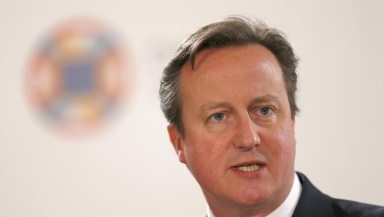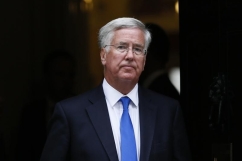
Parliament will vote on bombing Syria on Wednesday, Prime Minister David Cameron said, confident he can secure its approval after the opposition Labour Party allowed its members to vote freely on the issue.
Cameron believes it is time to join other Western powers in bombing Islamic State militants in Syria, saying Britain could not "subcontract" its security to others after the group claimed responsibility for killing 130 people in Paris this month.
By calling the debate this week it was clear the prime minister was sure he had won over some sceptical members in his own ruling Conservative Party and others in the Labour Party, which is deeply divided on launching strikes.
Earlier Labour's leader, Jeremy Corbyn, who is opposed to the action, told MPs he would allow a so-called "free vote" – breaking with a tradition for leaders to instruct MPs on how to vote on major decisions, to quell a growing rebellion in his party.
I believe there's growing support across parliament for the compelling case there is to answer the call from our allies, to act against ISIL (Islamic State) in Syria and in Iraq," Cameron said in a televised statement.
He said he would recommend the debate and vote take place on Wednesday and denied a request from Corbyn for a two-day debate.
By allowing a free vote, Corbyn, a veteran anti-war campaigner, has handed Cameron the majority he needs to avoid a repeat of a defeat in 2013, when parliament voted down a motion to launch strikes against Syrian President Bashar al-Assad.
While many in Labour fear more air strikes will bring more instability to the Middle East, some of the party's leading members have said they are necessary to ensure Britain's security.
A senior Labour source said Corbyn would still argue that Cameron had yet to meet the conditions set out by Labour at its annual conference earlier this year, including the provision of "clear and unambiguous" United Nations support for air strikes.
But the source said senior Labour lawmakers, including foreign affairs spokesman Hilary Benn, would be able to argue the case for military action, and against their party leader, without being forced to resign as would usually be the case.
















